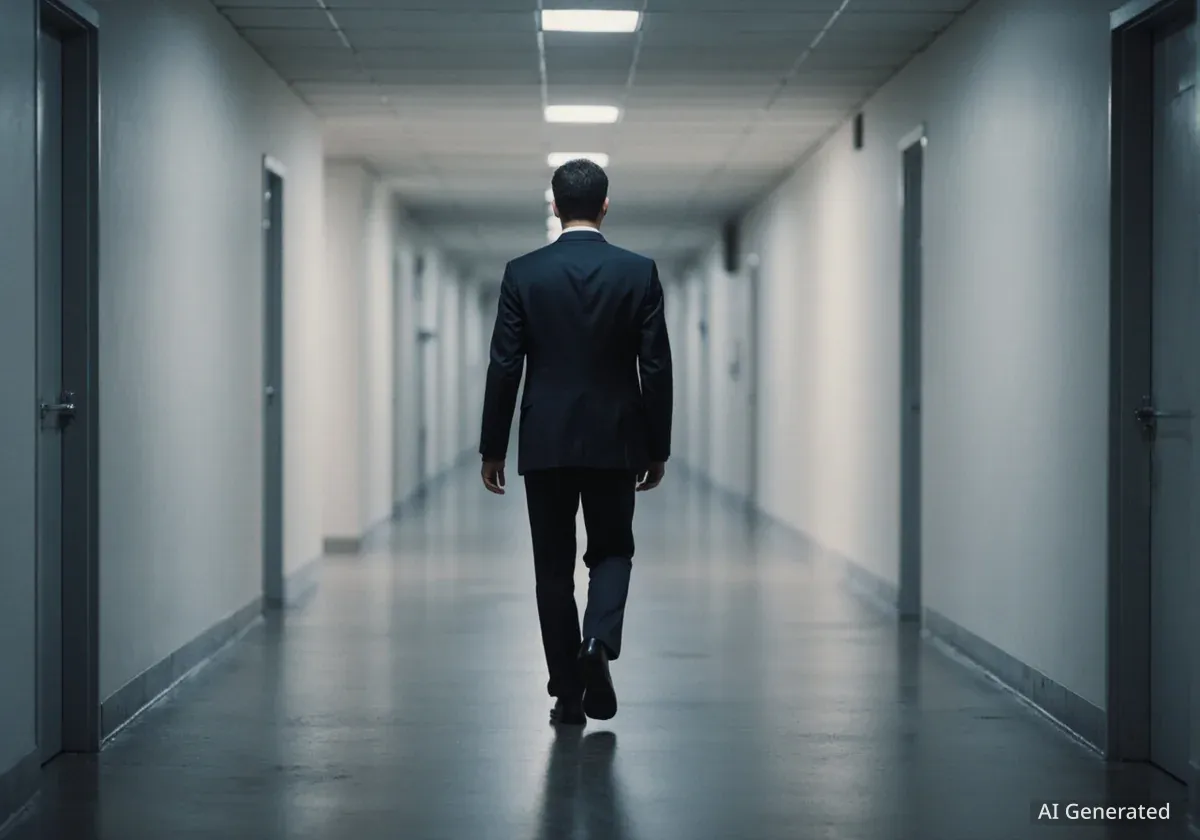A new film, Deliver Me from Nowhere, provides a focused look at Bruce Springsteen's creative process in 1981, leading to his critically acclaimed 1982 album, Nebraska. Starring Jeremy Allen White as Springsteen, the biopic moves beyond typical music industry narratives, concentrating instead on a specific, challenging period in the artist's life.
The movie, based on Warren Zane's book and informed by Springsteen's 2016 memoir, explores the intense mental and artistic journey that shaped one of his most distinctive records. It offers a unique perspective on the pressures and inspirations behind a major artistic shift.
Key Takeaways
- Deliver Me from Nowhere focuses on Bruce Springsteen's creation of the 1982 album Nebraska.
- Jeremy Allen White portrays a young, creatively challenged Springsteen in 1981.
- The film highlights a specific, limited period rather than a full career overview.
- It explores themes of mental fragility and artistic redirection.
- The movie screens at the New York Film Festival before wider release in October.
Focus on a Pivotal Creative Period
The film deliberately limits its scope, centering on Springsteen's early 30s. This was a time when he had achieved his first number one record, The River, and was on the verge of global superstardom. However, he also felt burned out from touring.
In 1981, Springsteen returned to New Jersey. Record executives at Columbia, represented by David Krumholtz in the film, urged him to produce more commercial hits. They wanted him to capitalize on his recent success. Instead, Springsteen chose to retreat to a rented house in Colts Neck.
Here, he began to develop the ideas for Nebraska. This album was a significant departure from his previous work. It featured folk-tinged acoustic tracks, exploring the lives of blue-collar workers, outlaws, and outsiders in the American heartland. The film captures this artistic redirection.
Background on Nebraska
Released in 1982, Nebraska was Bruce Springsteen's sixth studio album. It was recorded mostly on a four-track cassette recorder in his home. The album marked a sharp turn from the rock anthems that defined much of his earlier work. It presented a stark, acoustic sound and dark lyrical themes, focusing on characters facing hardship and moral dilemmas.
Jeremy Allen White's Portrayal
Jeremy Allen White, known for his roles in The Bear and Calvin Klein advertisements, takes on the demanding role of Springsteen. His performance, especially in the film's first half, requires viewers to adjust to his established screen presence. White's portrayal captures Springsteen's internal struggles.
He uses brown eye contacts to enhance the character's appearance. Initially, some viewers might see echoes of his previous characters, particularly the 'red-hot anxiety' often associated with Chef Carmy from The Bear. However, White eventually settles into the role, showing Springsteen's deep depression and panic after recording the initial demos.
"White eventually settles into character, especially as Bruce’s depression spirals into panic post-recording."
This period of mental fragility is a central theme. The film highlights the challenges of visualizing the intense, often solitary, creative process. Viewers spend time watching White's Springsteen write lyrics with a black marker. One scene shows him writing "Why???" when looking at an old headline about Charles Starkweather, whose 1958 murder spree inspired the album's title track.
Depicting Creative Struggle and Personal Demons
The film includes black-and-white flashbacks to Springsteen's working-class childhood in Freehold. These scenes aim to convey the fear he experienced due to his alcoholic, abusive father, played by Stephen Graham. Gaby Hoffmann plays his mother, depicting explosive family arguments. These flashbacks are brief and serve to provide context for Springsteen's later struggles.
Jeremy Strong, known for Succession, portrays Jon Landau, Springsteen's manager. Landau acts as a buffer between the commercial demands of the record label and Springsteen's artistic vision. These interactions are important for understanding the pressures Springsteen faced during this period.
Recording Nebraska
- The album was primarily recorded on a Portastudio 144 four-track cassette recorder.
- Springsteen initially intended these recordings as demos for his band to develop.
- The raw, intimate sound of the demos ultimately became the final album.
- This recording method contributed to the album's distinctive, lo-fi aesthetic.
The Technical Process and Mental Health
Deliver Me from Nowhere gains momentum by focusing on the technical aspects of recording. It explores how the limitations of cassette technology contributed to the album's unique, haunted sound. Brian Eno once described this as the "sound of failure," referring to its raw and unpolished quality. This detailed look at the recording process is a surprising highlight for many viewers.
Simultaneously, Springsteen's mental health declines. His relationship with local waitress Faye, a composite character played by Odessa Young, also crumbles. Young's character has one standout scene that highlights Springsteen's tendency to withdraw and his need for professional help. The film carefully illustrates how personal struggles influenced his art during this critical time.
The movie avoids over-mythologizing Springsteen. He is shown on stage only a few times, in brief flashes. For much of the film, he walks around New Jersey largely unrecognized. This approach keeps the focus on his internal world rather than the external trappings of celebrity.
The Impact of Nebraska
Despite its stark sound and dark themes, Nebraska was a critical success. It is often cited as one of Springsteen's most influential works, inspiring many artists with its raw honesty and storytelling. The album showcased his versatility and willingness to experiment beyond mainstream expectations.
The Legacy of a Landmark Album
The film briefly touches upon the recording of "Born in the USA," which was also written during this period in the Colts Neck rental house. However, this iconic song's eventual popularity and political legacy are outside the film's primary focus. The movie ends before that, leaving the emotional impact of Nebraska fresh in the viewer's mind.
The narrative concludes with the wins and wounds associated with this single, heart-wrenching album still present. This specific ending allows the audience to fully appreciate the album's profound effect. Many viewers report wanting to listen to Nebraska, particularly songs like "Atlantic City," immediately after seeing the film. This suggests the biopic successfully conveys the enduring power of Springsteen's work from this period.
Deliver Me from Nowhere is screening at the New York Film Festival. It will be released in Australian cinemas on October 23 and in the US and UK on October 24.




